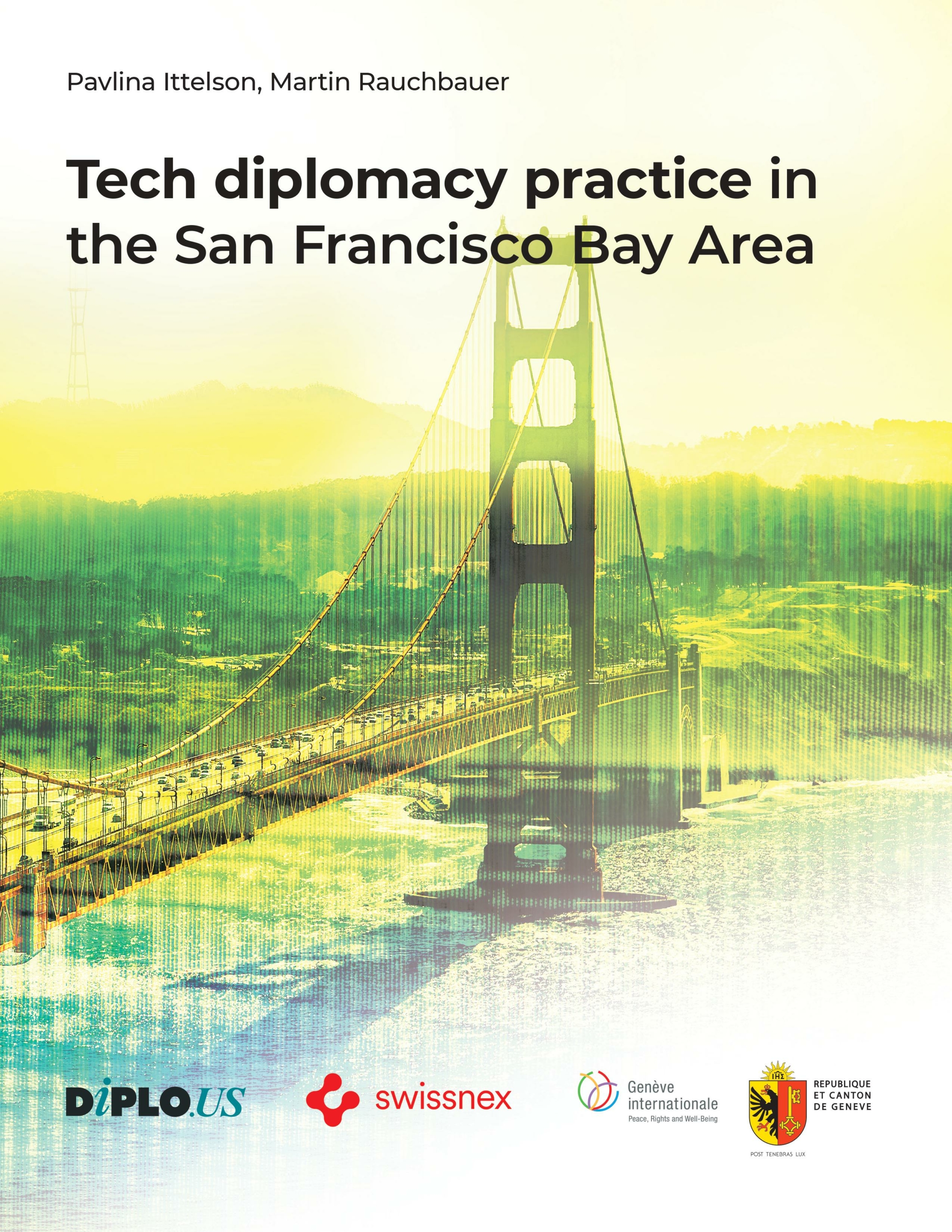
Core concepts of diplomacy
Click to show page navigation!
What
What is diplomacy?

Diplomacy can be defined as a complex and evolving practice that has developed over thousands of years, forming a fundamental aspect of international relations. It is a complex social process that involves the peaceful conduct of international relations, primarily through negotiation and dialogue, to implement foreign policy interests and resolve conflicts. This allows nations to express their interests and find common ground, which enhances trust, security, and cooperation in trade, culture, and science.
Beyond formal negotiations
It is essential to understand that diplomacy goes beyond traditional negotiations. It encompasses various activities, such as public diplomacy, track II diplomacy, and cultural exchanges. More specifically, diplomacy involves the activities of agents and representatives from states, international organizations, businesses, and other entities. It is structured within an institutional framework that includes bodies like foreign affairs ministries, embassies, consulates, and various international organizations.

Jovan Kurbalija, the founding director of DiploFoundation, presents a three-layered definition of diplomacy that offers comprehensive insights into Diplo's teaching and research.
Diplomacy can be broadly defined as the conduct of international relations by peaceful means. Diplomacy is the opposite of the military.
In a more restricted sense, it refers to the activities carried out by agents and representatives of states, international organizations, businesses, and other actors.
Most specifically, diplomacy is characterized as an institutional system operated by diplomatic services, including ministries of foreign affairs, embassies, and consulates, as well as by international organizations.
Types
Types of diplomacy
The term "diplomacy" encompasses a wide range of strategies, with over 200 distinct categories developed to manage the various aspects of international relations. While traditional methods like bilateral diplomacy, which involves two countries, and multilateral diplomacy, which includes three or more nations, remain essential, the discipline continually evolves. Newer methodologies, such as gumboot diplomacy, that involves the use of traditional African dance, particularly gumboot dancing, as a way to communicate and build relationships across cultural and racial divides, and ping-pong diplomacy, which leverages cultural exchanges as initial engagement, have emerged in response to changing global circumstances.
Several fundamental forms of diplomacy underscore the extensive scope of this practice, illustrating the intricate and dynamic character of international relations:
Traditional diplomacy:
This includes the core functions of diplomacy, encompassing both bilateral and multilateral engagements, which serve as the foundation of international relations.
Public diplomacy
This type directly engages with foreign populations to build understanding and support for a nation's policies. It employs media, cultural programs, and educational exchanges to shape perceptions and foster favorable relationships.
Economic diplomacy
This approach utilizes economic tools, such as trade agreements, investment initiatives, and development aid, to promote national interests and cultivate partnerships.
Specialised diplomacy
This category includes a growing range of focused approaches, such as military diplomacy (defence cooperation), crisis diplomacy (urgent negotiations to de-escalate conflicts), environmental diplomacy, cultural diplomacy, and health diplomacy.
Digital diplomacy
Recognizing the influence of online platforms and social media, digital diplomacy employs these tools to engage foreign audiences, conduct public diplomacy, and advance national interests in the digital realm.

Key principles of diplomacy
The key principles of diplomacy serve as foundational guidelines that govern interactions among nations and international actors, ensuring effective communication and cooperation.
- Sovereignty is a fundamental principle, asserting that nations have the right to govern themselves without external interference. This respect for sovereignty is crucial for maintaining territorial integrity and establishing equal footing in diplomatic relations. Alongside sovereignty, mutual respect plays a significant role in fostering trust and understanding between countries, facilitating more productive dialogue and cooperation.
- Reciprocity emphasises the importance of treating other nations as equals and recognising their interests, promoting fairness in diplomatic exchanges. This principle encourages states to honour their commitments in agreements, which builds trust and facilitates cooperation. Furthermore, the principle of non-interference prohibits nations from meddling in the internal affairs of others, maintaining peaceful relations, and respecting the autonomy of countries. This allows for constructive dialogue without the threat of coercion.
- Another critical principle is the peaceful resolution of disputes, which underscores the importance of resolving conflicts through dialogue, negotiation, and peaceful means rather than military action. This approach promotes stability and harmony in international relations.
- Additionally, transparency and accountability in diplomatic practices enhance trust and enable informed decision-making. Open communication among nations fosters accountability and reduces misunderstandings, creating a more conducive environment for negotiations.
- The principles of flexibility and adaptability allow diplomats to respond effectively to the dynamic nature of international relations, while collective security emphasises cooperation among nations to ensure peace and stability. Cultural sensitivity is also vital, as understanding and respecting cultural differences enhance communication and relationships.
Lastly, building trust and relationships is fundamental to effective diplomacy, as strong connections facilitate smoother negotiations and collaboration over time. Together, these principles shape diplomatic interactions and contribute to a more stable and peaceful international community.
When
When did diplomacy begin?

Diplomacy has played a crucial role in human interaction throughout history. Early evidence of diplomatic practices can be traced back to ancient civilizations such as Mesopotamia, Egypt, and China, where envoys were dispatched to negotiate treaties and establish alliances. The earliest known diplomatic correspondence dates back to around 2500 BC in the city-states of Sumer, where clay tablets documented these diplomatic activities.
Formal diplomatic practices became more clearly defined in ancient Greece and Rome, where the roles of ambassadors and diplomats were recognized and codified.
During the Middle Ages, diplomacy became closely intertwined with religious and feudal relations, as monarchs and religious leaders negotiated to resolve conflicts and establish power dynamics.
The modern concept of diplomacy began to take shape in the 1450s with the establishment of the first official embassy. The formation of the first ministry of foreign affairs in 1678, credited to Cardinal Richelieu, marked a significant milestone in the evolution of diplomacy. The Peace of Westphalia in 1648, which concluded the Thirty Years' War in Europe, is widely regarded as the beginning of modern diplomacy, setting the foundation for the diplomatic protocols and systems recognized today.
Throughout history, diplomacy has continually evolved, adapting to international relations' changing needs and complexities. The rise of nation-states, the development of international organizations, and the increasing importance of economic and cultural factors have all influenced the practice of diplomacy. Today, diplomacy encompasses a wide array of approaches and methodologies, reflecting the diverse challenges and opportunities that countries face in the global arena.
Why
Why is diplomacy relevant?
Diplomacy is essential as it serves as a critical mechanism for managing international relations, preventing conflicts, and fostering cooperation among nations. Its impact is multifaceted: it facilitates the peaceful resolution of disputes, promotes economic stability, and enables collaboration on global issues such as climate change, trade, and security. By providing a structured framework for dialogue and negotiation, diplomacy helps mitigate tensions and address shared challenges, which is crucial in an interconnected world where conflicts can have far-reaching consequences beyond national borders.
From a philosophical standpoint, diplomacy embodies principles of communication, compromise, and respect for diverse perspectives. It reflects a belief in the potential for rational discourse to overcome differences, aligning with ideals of humanism and cosmopolitanism that emphasize our shared humanity. Philosophers like Immanuel Kant advocated for diplomacy as a means to achieve "perpetual peace," suggesting that nations can create a more just and stable world through dialogue and mutual understanding. The ethical dimensions of diplomacy also stress the importance of human rights, justice, and the moral obligation to pursue peaceful resolutions rather than resorting to conflict.
One of the primary functions of diplomacy is to facilitate the peaceful resolution of disputes between nations. It provides a structured framework for dialogue and negotiation, crucial for mitigating tensions and preventing conflicts from escalating into violence. Peace diplomacy, for instance, involves diplomatic efforts, negotiations, and communication to resolve disputes and avoid the outbreak of war. This approach often includes the involvement of international organizations such as the United Nations, regional bodies, and non-governmental organizations (NGOs) to facilitate the peace process.
Moreover, diplomacy plays a significant role in promoting economic stability and cooperation among nations. Countries can establish trade agreements, resolve financial disputes, and collaborate on economic development initiatives through diplomatic negotiations. Maritime diplomacy, for example, ensures the sustainable use and management of marine resources, promotes regional economic development and facilitates international trade and transportation.
In addition to conflict resolution and economic stability, diplomacy is crucial in addressing pressing global challenges such as climate change, pandemics, and migration. These complex issues require coordinated responses and collective action, achievable only through diplomatic efforts.
Despite its importance, diplomacy faces significant challenges in the 21st century. The deterioration of multilateralism, rising geopolitical conflicts, and increasing societal polarization test the role of diplomacy as a mechanism for the peaceful resolution of disputes.
To remain effective, diplomacy must enhance its public image and demonstrate its benefits to a broader audience. By improving public diplomacy, diplomats can foster a clearer understanding of the advantages of diplomatic methods and the importance of compromise.
How
How is diplomacy performed?

Diplomacy employs various strategic methods to achieve specific objectives and adapt to international contexts. Key techniques include negotiation, economic diplomacy, lobbying, mediation, military diplomacy, and soft power.
For instance, military diplomacy and mediation contribute to global security and stability by fostering cooperation and resolving conflicts. These strategies complement other diplomatic tools to manage disputes, cultivate economic and cultural ties, and establish a foundation for joint action on complex issues. Diplomats effectively expand their influence through soft power, enhancing their ability to achieve foreign policy goals.
Effective communication is essential in diplomacy. Diplomats must be skilled in persuasion, negotiation, and engaging with diverse cultures. Critical interpersonal skills such as empathy and cultural sensitivity are crucial for building trust and maintaining relationships. A deep understanding of cultural nuances helps diplomats strengthen connections and avoid misunderstandings.
In recent years, diplomacy has evolved to include non-state actors, such as multinational corporations, non-governmental organizations, and international institutions, reflecting a shift toward a more inclusive and transparent approach. This modern form of diplomacy utilizes digital and public channels, allowing diplomats to engage with global audiences through social media and online platforms. These digital tools enhance transparency and enable public participation in diplomatic efforts, facilitating rapid crisis response.
Data analytics plays a vital role in policymaking, as governments use it to monitor trends and address emerging issues. Cyber diplomacy has gained significance as nations collaborate on cybersecurity norms to protect digital infrastructures. Overall, technology is reshaping the landscape of diplomatic practices.
Where
Where is diplomacy practiced?
Diplomacy is performed in various settings, reflecting the diverse nature of international relations. Here are some of the primary locations and platforms where diplomatic activities take place:
1. Embassies and consulates
Embassies and consulates are the most common venues for diplomacy. Embassies serve as the main diplomatic missions of one country in another, where ambassadors and their staff conduct official diplomatic activities, including negotiations, discussions, and cultural exchanges. Consulates handle more localised diplomatic functions, such as assisting citizens, issuing visas, and promoting trade.
2. International Organisations
Diplomacy frequently occurs within international organisations such as the United Nations (UN), World Trade Organization (WTO), and regional bodies like the European Union (EU) or African Union (AU). These organisations provide a platform for member states to engage in multilateral diplomacy, addressing global issues like security, trade, and environmental concerns through discussions, resolutions, and treaties.
3. Bilateral meetings
Diplomats often conduct bilateral meetings between representatives of two countries to discuss specific issues, negotiate agreements, or resolve conflicts. These meetings can occur at various levels, including heads of state, foreign ministers, or lower-level officials, and can take place in formal settings like government buildings or informal settings like private dinners or conferences.
4. Summits and conferences
High-level diplomatic summits and conferences bring together leaders and representatives from multiple countries to discuss pressing global issues. Events like the G7, G20, or climate change conferences facilitate discussions on international cooperation, economic policies, and global security.
5. Track II diplomacy venues
Track II diplomacy, which involves unofficial dialogue and problem-solving activities among non-governmental actors, often takes place in informal settings such as academic institutions, think tanks, or private meetings. These interactions allow for exploration of solutions to conflicts without the formal constraints of official negotiations.
6. Cultural and public diplomacy events
Cultural diplomacy events, such as art exhibitions, educational exchanges, or international festivals, are venues for diplomats to foster mutual understanding and goodwill among nations. Public diplomacy initiatives, including media outreach and public engagement, also occur in various public settings to influence foreign public opinion.
7. Virtual platforms
In recent years, virtual diplomacy has gained prominence, with diplomatic discussions and negotiations increasingly taking place online. Virtual platforms facilitate communication and collaboration among diplomats and international actors, allowing for timely engagement without geographical constraints.
Who
Who are the actors of diplomacy?
The actors of diplomacy encompass a diverse array of individuals, organisations, and entities that engage in diplomatic activities and contribute to international relations. Here are the primary actors involved in diplomacy:
1. States and governments
States are the principal actors in diplomacy, representing their interests on the global stage. Governments, through their foreign ministries or departments, manage diplomatic relations and conduct negotiations with other nations. Heads of state and foreign ministers play crucial roles in shaping and implementing foreign policy.
2. Diplomats and Ambassadors
Diplomats are individuals appointed by governments to represent their country's interests abroad. Ambassadors, as the highest-ranking diplomats, lead embassies and are responsible for maintaining diplomatic relations, negotiating treaties, and addressing issues between their home country and the host nation. Diplomats may also include consuls, chargé d'affaires, and other diplomatic staff.
3. International Organisations
Organisations such as the United Nations (UN), World Trade Organization (WTO), and regional bodies like the European Union (EU) are significant actors in diplomacy. These organisations facilitate multilateral diplomacy, enabling member states to collaborate on global issues, set norms, and coordinate responses to crises.
4. Non-Governmental Organisations (NGOs)
NGOs play a vital role in diplomacy, especially in areas like human rights, environmental protection, and humanitarian aid. They often engage in advocacy, research, and grassroots efforts, influencing diplomatic agendas and public policy at national and international levels.
5. Civil society and public
The involvement of civil society, including advocacy groups, think tanks, and the general public, is increasingly recognized in diplomacy. Public opinion can significantly impact diplomatic relations and policies, prompting governments to consider the perspectives and interests of their citizens.
6. Multinational corporations (MNCs)
MNCs are influential actors in economic diplomacy, as they operate across borders and can affect international trade and investment. Their interests often align with or challenge national policies, making them key players in negotiations involving economic agreements and regulations.
7. Academics and Think Tanks
Scholars and think tanks contribute to diplomatic discourse by providing research, analysis, and policy recommendations. Their expertise can shape the understanding of complex international issues and influence decision-making processes in diplomacy.
8. Media
The media plays a crucial role in shaping public perceptions of diplomatic events and issues. Journalists and media organisations report on diplomatic activities, hold governments accountable, and can influence public opinion and policy discussions.
9. Track II diplomacy actors
Track II diplomacy involves non-official dialogues and initiatives aimed at resolving conflicts and fostering understanding. Actors in this realm include former diplomats, academics, and civil society representatives who engage in informal discussions to explore solutions to international disputes.
The Changing
The Changing landscape of diplomacy

The landscape of diplomacy is continually evolving, influenced by contemporary challenges and developments in global relations. While the core principles of diplomacy remain consistent, practices have adapted to address critical factors such as the rise of non-state actors, the increasing importance of soft issues like health and the environment, and the emergence of digital diplomacy. These changes require new approaches and strategies to navigate the complexities of modern international interactions effectively.
In recent decades, non-state actors have become significant players in the diplomatic arena. International NGOs, multinational corporations, and other non-governmental entities are now actively engaged in diplomatic efforts, expanding the scope of diplomacy beyond traditional state-to-state interactions.Their involvement highlights the necessity for innovative strategies considering various stakeholders and perspectives in diplomatic discussions.
Additionally, the focus of diplomacy has shifted to include soft issues, recognizing the interconnectedness of global challenges that transcend national borders. This "new diplomacy" emphasizes collaborative solutions to urgent problems such as climate change, public health, and education. Addressing these challenges demands a holistic approach that unites diverse actors and resources, underscoring the importance of cooperation and partnerships to achieve sustainable development and resilience in global crises.
The digital era has also significantly transformed diplomatic practices. Digital diplomacy leverages technology to enhance communication, improve negotiation processes, and facilitate public engagement. However, this shift presents challenges, such as the need for diplomats to adapt to a rapidly changing digital landscape and to address cybersecurity threats, misinformation, and digital espionage. Despite these challenges, digital tools have the potential to make diplomacy more inclusive and transparent, fostering better knowledge management and public diplomacy efforts. Moreover, advancements in big data and AI analysis can provide valuable insights, enhancing decision-making processes in diplomacy. Overall, the evolving landscape of diplomacy illustrates the necessity for adaptability and innovation to confront today's complex realities of global governance.











